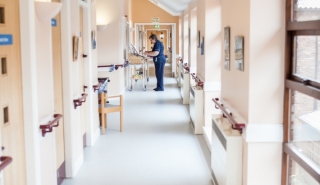More in this section:
Laboratory Medicine
Point of Care Testing (POCT)
Welcome to Point Of Care
Contact Information:
If your query is urgent, do call us. If we are unable to answer, please leave a message with your name and location and we will get back to you:
York POCT: (01904 72) 5890
Scarborough POCT: (01723 34) 2659
Bridlington POCT: (771) 3321
You can also email us at yhs-tr.POCT.Team@nhs.net
| Key Contact | Telephone | |
|---|---|---|
|
Lead Clinician for Point of Care Testing (POCT)
Dr Deepak Chandrajay Consultant in Chemical Pathology & Metabolic Medicine |
(01904 72) 5670 | |
|
Maria de Ferrars Principal Clinical Biochemist |
maria.deFerrars@nhs.net |
(01904 72) 5599 |
|
Dr Mark Hajjawi Network Specialist Biochemistry & Immunology Manager |
(01482) 607802 | |
|
Rachel Lampard Senior Biomedical Scientist Point of Care Testing (POCT) Coordinator |
Rachel.Lampard@.nhs.net |
(01904 72) 5890 |
|
Clemora Wilkinson Senior Biomedical Scientist Point of Care Testing (POCT) Coordinator |
(01904 72) 5890 |
POCT Correspondence
Letter to service users regarding the discontinuation of urine pregnancy tests click here
Virtual Point Of Care Folder
For POCT Standard Operating Procedures please Click here
Blood Gas Machine and Ketone Meter locations
For blood gas machines and ketone meter locations please Click here
Recertification and training documents
For recertification and training documents please Click here
POCT Link Trainer Documentation
Documentation for link trainers who have been certified by POCT please Click here
POCT Community Support
For community support information please Click here
Web page 70 last reviewed: 25/07/2023






